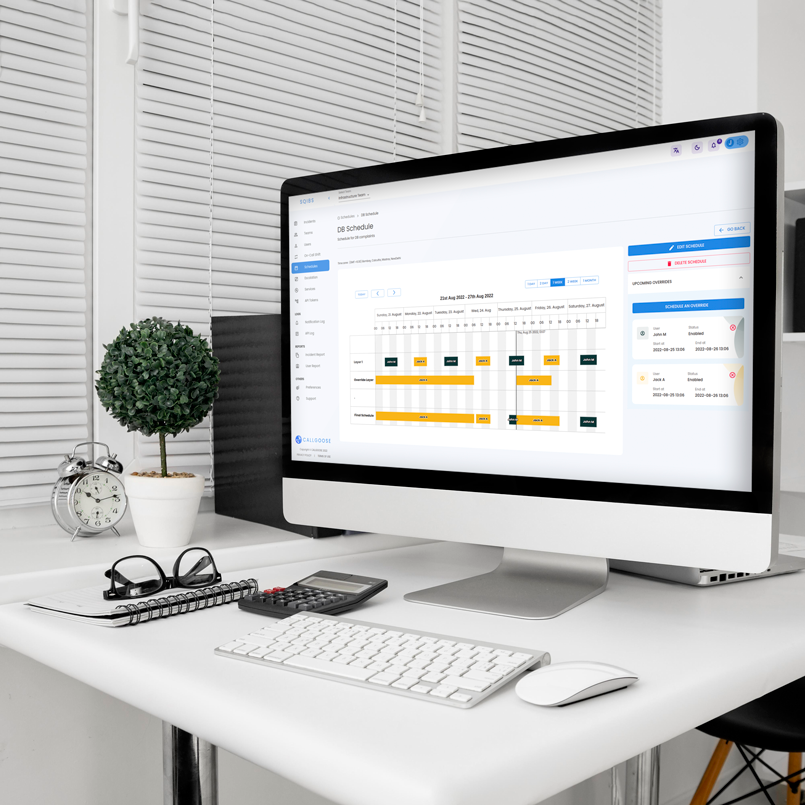Integrations
Sumo Logic
This document shows you how you can integrate Callgoose SQIBS with Sumo Logic.
Incidents will be creating in Callgoose SQIBS when there is a incident created in Sumo Logic as per the workflows configured by you in the Sumo Logic
In Callgoose SQIBS
Create filter as per the Sumo Logic workflows.
- For test purpose, create an API filter like this
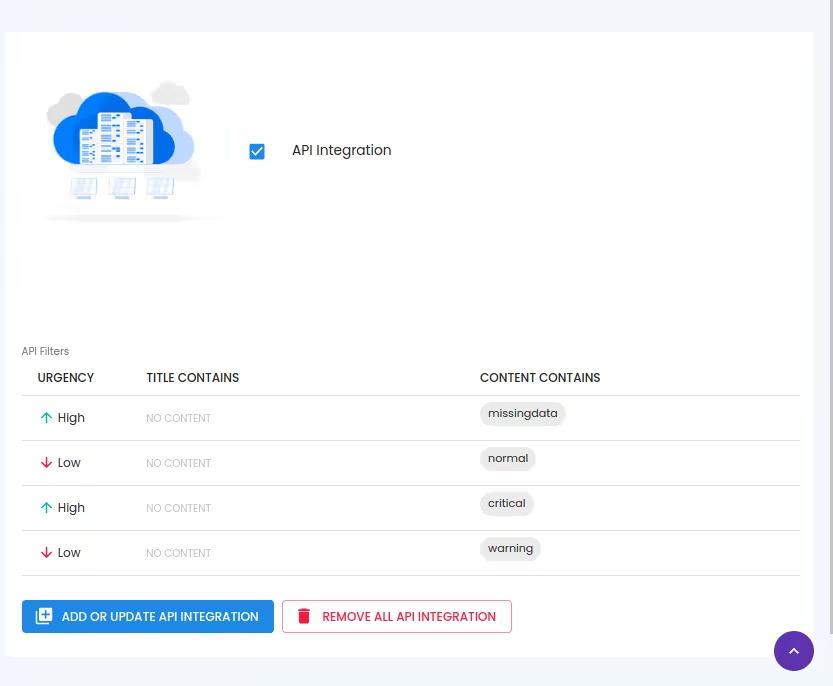
After test, create suitable API filter values depending on the payload sent by Sumo Logic to create a meaningful incident.
In Sumo Logic
1. Click on Manage Data and Go to Monitoring page
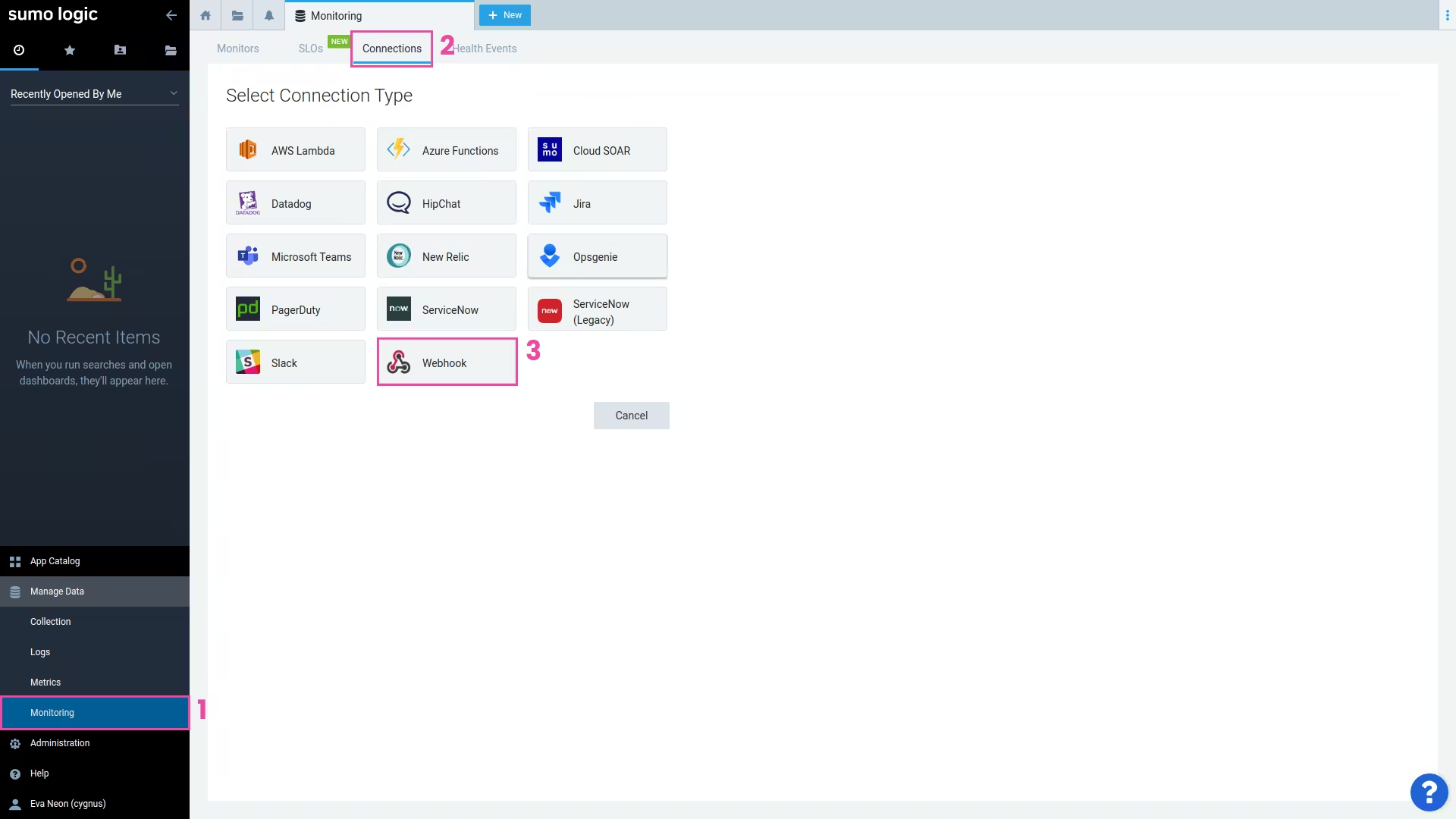
Click on Webhooks
2. Fill the following in Create webhook connection
- Name : CallgooseSQIBS
- Url : Enter your API Endpoint
- Authorization Header :"Bearer $APITOKEN"
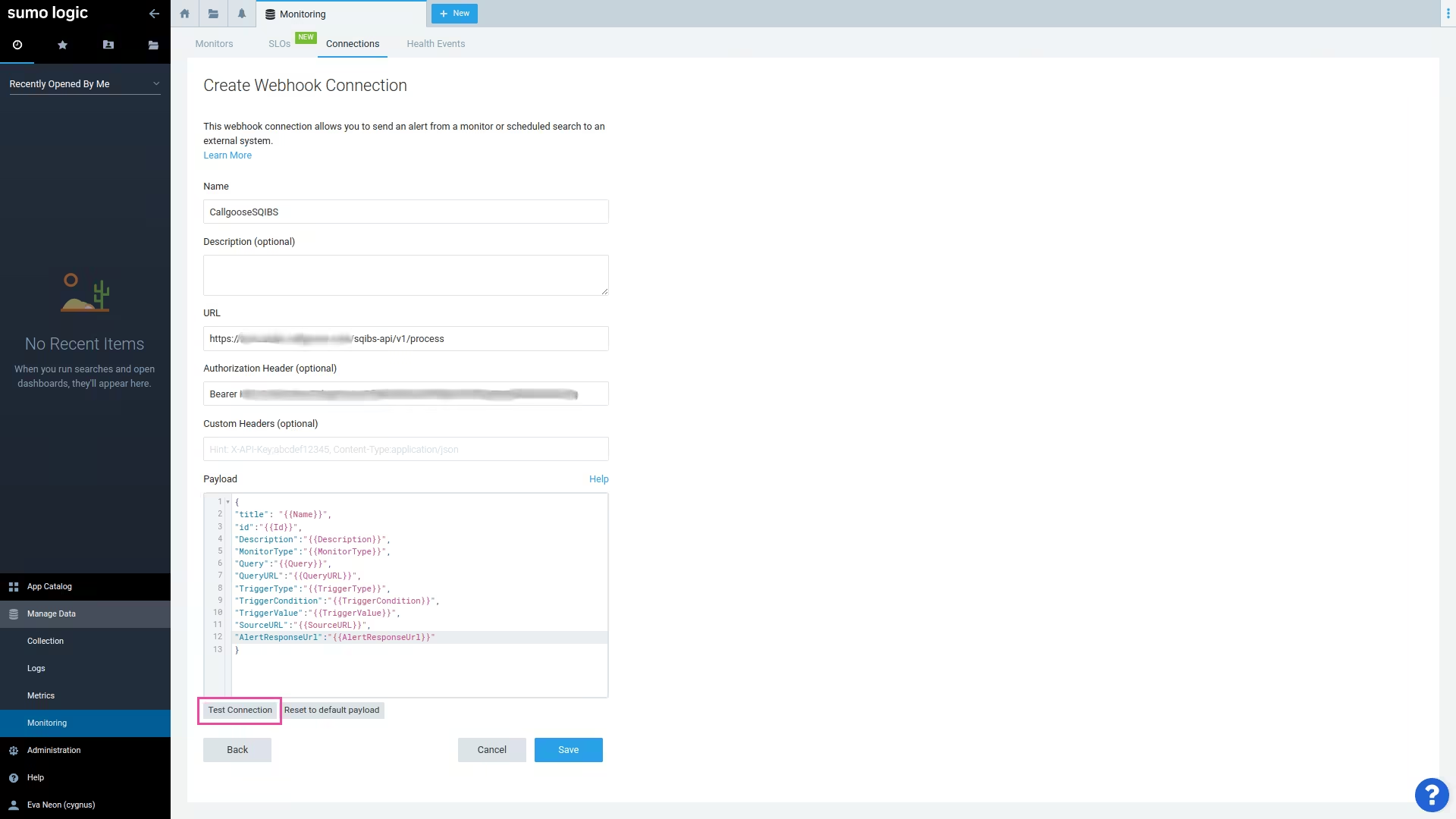
3. Payload.
Custom payload: Use the following JSON payload.
{
"title": "{{Name}}",
"id": "{{Id}}",
"Description": "{{Description}}",
"MonitorType": "{{MonitorType}}",
"Query": "{{Query}}",
"QueryURL": "{{QueryURL}}",
"TriggerType": "{{TriggerType}}",
"TriggerCondition": "{{TriggerCondition}}",
"TriggerValue": "{{TriggerValue}}",
"SourceURL": "{{SourceURL}}",
"AlertResponseUrl": "{{AlertResponseUrl}}"
}
You can customize your own payload with Available placeholders or use the default payload.
4. Click on Test Connection to send this notification to Callgoose SQIBS to test
1. Please make sure you have added API filter contains values in Callgoose SQIBS before you send test notifications.
2. You can decide on ‘what Sumo Logic payload’(customise the values in the Custom payload section) you need notifications in Callgoose SQIBS and depending upon that you can create the API filter values in the Callgoose SQIBS
Make sure to select the alert notifications you want to notified and click on Save
5. You can see that Callgoose SQIBS created the Incident as per the above ‘Sumo Logic payload values’
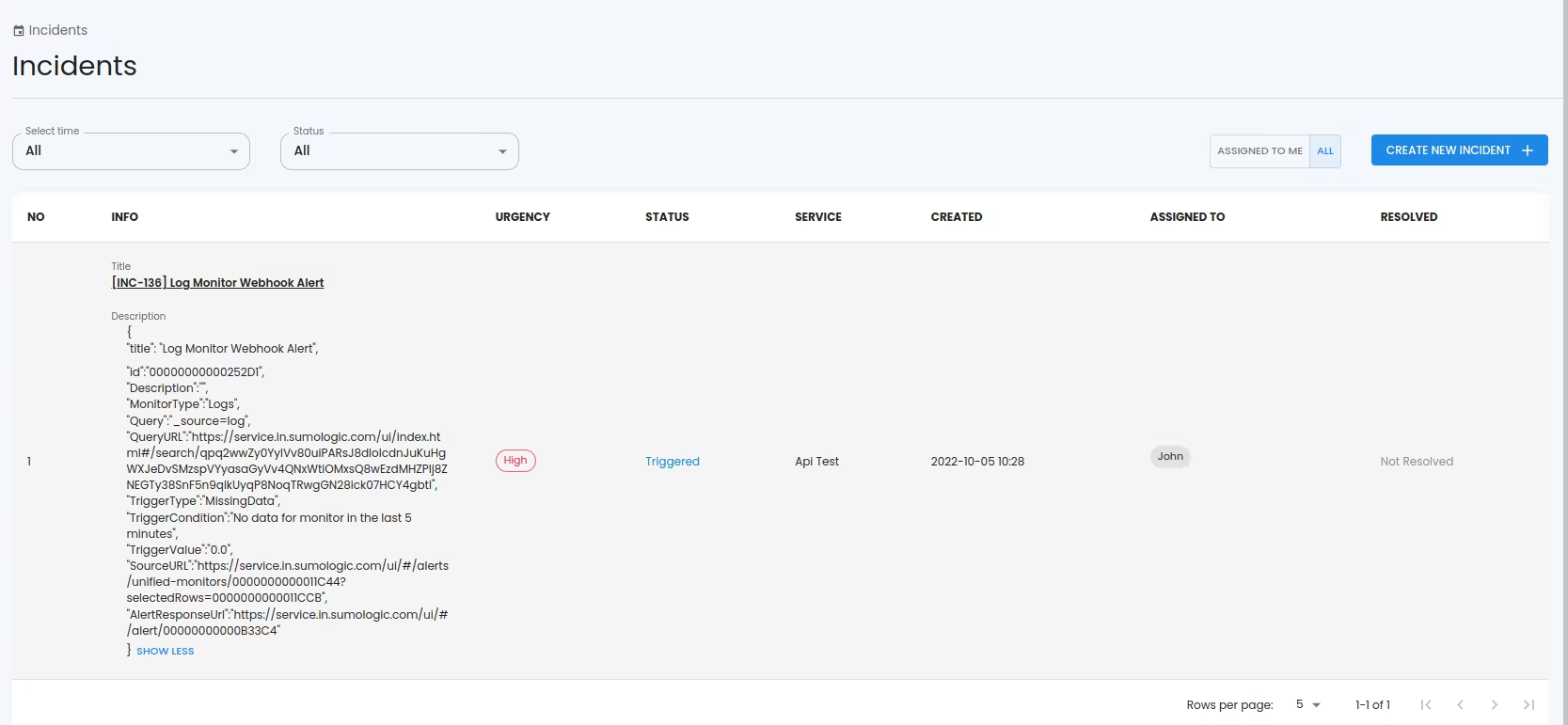
Now whenever an alert notification is triggered in Sumo Logic, an incident will automatically be created in Callgoose SQIBS if the API Filter is success for the payload.

